
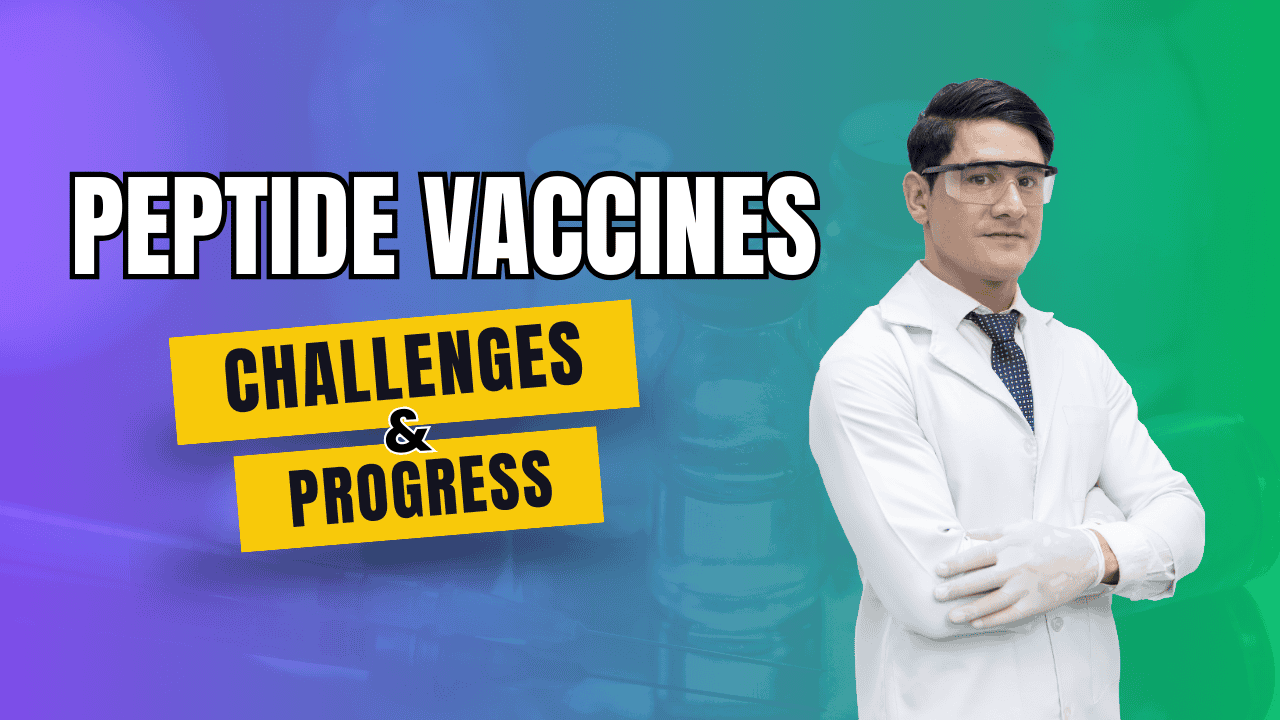
Ever wondered how tiny molecules could make a colossal difference in our fight against diseases?
Peptide vaccines are stepping into the spotlight, revolutionizing vaccine development as we know it.
In this comprehensive overview for 2024, we’ll journey through the fascinating world of peptide-based vaccines, uncovering the challenges and progress that are shaping the future of immunization.
From synthetic peptides to innovative cancer vaccines, let’s dive in and see what’s cooking in the labs!
So, what’s the deal with peptide vaccines anyway? Unlike traditional vaccines that use whole pathogens (either weakened or inactivated), peptide vaccines use specific pieces of the pathogen—usually synthetic peptides—that are responsible for triggering an immune response. Think of it like showing a picture of a burglar to your security system instead of inviting the burglar inside!
Peptide vaccines are catching eyeballs because they’re precise, safe, and relatively easy to produce. By focusing on specific antigens, they minimize the risk of adverse reactions. Plus, with the power of synthetic technology, we can design peptides to target elusive diseases. It’s like having a custom-made key for a lock that’s been jammed for ages.
The journey from traditional to peptide vaccines marks a significant leap in vaccine development. While classic vaccines laid the groundwork, peptide-based vaccines are the new kids on the block, offering solutions to challenges that have stumped scientists for decades. They’re particularly exciting in the realm of cancer vaccines, where targeting specific cancer cells is crucial.
| Vaccine Type | Target Disease | Development Stage | Efficacy Rate | Key Challenges |
|---|---|---|---|---|
| Synthetic Peptide | Cancer | Clinical Trials | 60-70% | Low immunogenicity, high cost |
| Multi-Peptide Vaccine | Influenza | Preclinical | TBD | Antigenic variability |
| Personalized Peptide | Various Cancers | Early Research | TBD | High production cost, regulatory |
| Traditional Vaccines | Various | Approved | 70-95% | Production scalability |
Peptide vaccines present specific peptide epitopes—tiny pieces of proteins—to the immune system, prompting it to recognize and attack cells displaying these peptides. It’s like a wanted poster for your immune cells, highlighting exactly who to look out for. This specificity is a game-changer in creating effective vaccines with fewer side effects.
Developing a peptide vaccine isn’t a walk in the park, but it’s fascinating! Scientists start by identifying potential vaccine targets—specific antigens or peptide sequences associated with a disease. Then, they create synthetic peptides matching these sequences and formulate them into a vaccine, often with an adjuvant to boost the immune response.
Synthetic peptides are crafted in the lab to mimic parts of pathogens. In vaccine formulation, these synthetic peptides act as the main ingredient, presenting the immune system with a precise target. By using synthetic methods, we ensure consistency and purity, which are crucial for vaccine efficacy.
Ever tried finding a needle in a haystack? Epitope mapping is a bit like that but for identifying the most effective peptide epitopes. By mapping out which parts of an antigen are most likely to trigger an immune response, researchers can select the best candidates for peptide vaccines.
Choosing the right peptide can make or break a vaccine. The selected peptide must be immunogenic enough to elicit a strong response but safe enough to avoid adverse effects. It’s a delicate balancing act, much like seasoning a soup—not too bland, not too spicy.
Synthetic vaccines are, quite literally, built in the lab. They use synthetic peptides to mimic natural antigens. By synthesizing these peptides, scientists have full control over the vaccine design, allowing for modifications that enhance efficacy and stability. It’s like 3D-printing the perfect puzzle piece for our immune system.
Synthetic peptide vaccines can be engineered to improve immunogenicity—the ability to provoke an immune response. By tweaking the peptide sequence or adding adjuvants, these vaccines can better stimulate the immune system. Imagine adding turbo boosters to a car; the journey to immunity just got faster!
Synthetic peptides offer consistency, purity, and scalability. They’re less likely to cause allergic reactions and can be rapidly produced, which is crucial during outbreaks. Plus, they open doors to developing vaccines for diseases where traditional methods have failed. It’s like having a Swiss Army knife in the world of immunization.
While it’s hard to predict the future, synthetic vaccines are certainly strong contenders. With the rise of personalized medicine and the need for rapid vaccine development, synthetic peptide vaccines offer flexibility and efficiency that traditional vaccines might lack.
An adjuvant is a substance added to vaccines to enhance the body’s immune response. Think of it as the hype man at a concert, firing up the crowd before the main act. In peptide vaccines, adjuvants are crucial because peptides alone may not be immunogenic enough.
Adjuvants work by stimulating the immune system, increasing the production of antibodies, and promoting a stronger, longer-lasting response. They can help present the peptide to immune cells more effectively, ensuring that the vaccine doesn’t go unnoticed.
Researchers are continually exploring new adjuvant formulations to boost vaccine efficacy. From nanoparticles to emulsions, innovative adjuvants are being designed to pair perfectly with synthetic peptides. It’s like finding the ideal dance partner to complement every move.
Absolutely! One of the main challenges of peptide vaccination is the lower immunogenicity of peptides. Adjuvants can bridge this gap, amplifying the immune response and enhancing the overall efficacy of the vaccine.
Peptide cancer vaccines aim to train the immune system to recognize and attack cancer cells by targeting specific peptide antigens expressed on tumor cells. It’s like giving your immune cells a GPS coordinate to the cancer’s hideout.
Various cancers, including breast cancer, prostate cancer, and melanoma, are being targeted with peptide vaccines. Each cancer type presents unique peptide antigens, making peptide vaccines a versatile tool in cancer therapy.
Developing cancer vaccines is no small feat. Challenges include identifying the right peptide antigens, overcoming immune tolerance, and ensuring the cancer vaccine elicits a robust response. But progress is steady, with several vaccine candidates showing promise in clinical trials.
Yes! Peptide vaccines can be tailored to an individual’s tumor profile, heralding a new era of personalized medicine. By focusing on specific peptide epitopes unique to a patient’s cancer, treatments become more effective and less invasive.
Some hurdles include peptide stability, low immunogenicity, and the delivery of the peptide to the right immune cells. Additionally, manufacturing synthetic peptides can be costly and time-consuming.
Peptides can be prone to degradation, which affects the vaccine’s shelf life and efficacy. Ensuring peptide stability during vaccine formulation is like keeping a delicate souffle from collapsing—tricky but essential.
Immunogenicity can be boosted by using adjuvants, optimizing peptide sequences, or employing delivery systems like nanoparticles. It’s all about making the peptide irresistible to the immune system.
Strategies include using long peptides to improve immune presentation, multi-peptide vaccines to target multiple epitopes, and innovative vaccine delivery methods. It’s a multi-pronged approach to outsmart pathogens.
The formulation determines how the peptide is presented to the immune system. Proper vaccine formulation can enhance stability, delivery, and immune response, directly influencing vaccine efficacy.
Delivery systems like liposomes, nanoparticles, and emulsions can protect peptides from degradation and improve uptake by immune cells. Think of them as protective envelopes delivering VIP messages straight to the immune headquarters.
Best practices include selecting the right adjuvant, optimizing peptide sequences, ensuring peptide stability, and choosing effective delivery systems. It’s like following a recipe for the perfect dish—each ingredient and step matters.
Formulation techniques can determine the type and strength of the immune response. By manipulating these techniques, scientists can steer the immune system towards a desired response, much like a conductor leading an orchestra.
Synthetic vaccines use lab-created peptides or antigens, while traditional vaccines use whole pathogens or parts derived from them. Synthetic vaccines offer precision and consistency, whereas traditional vaccines might carry more risk of side effects.
Benefits include safety, specificity, and the ability to target diseases that evade traditional vaccines. Limitations involve lower immunogenicity and higher production costs. It’s a classic case of pros and cons.
Not entirely, but they can complement them. Synthetic peptide vaccines are invaluable in areas where traditional vaccines fall short. It’s about having more tools in the toolbox, each suited for different tasks.
Synthetic vaccines can be rapidly adjusted to account for antigenic variability, such as in influenza viruses. By updating the peptide sequences, vaccines can stay ahead of mutating pathogens.
Innovative systems like nanoparticles, microneedle patches, and viral vectors are being explored. These methods aim to improve vaccine delivery and efficacy, making the vaccination process smoother than ever.
Nanoparticles can carry peptides directly to antigen-presenting cells, protect them from degradation, and even act as adjuvants themselves. They’re like stealthy couriers delivering precious cargo safely and efficiently.
Liposomes are tiny vesicles that can encapsulate peptides, enhancing delivery and uptake by immune cells. They act as protective bubbles, ensuring the peptide reaches its destination intact.
Mucosal delivery routes, like nasal sprays, are gaining interest. They offer a non-invasive method and can induce both systemic and mucosal immunity. It’s like getting double the protection with a single shot—or in this case, a sniff!
Peptide vaccines present specific antigens to T cells, activating them to recognize and attack infected or cancerous cells displaying these peptides. It’s like training guard dogs to recognize a specific scent.
T cells are crucial players, especially cytotoxic T lymphocytes (CTLs), which kill infected or cancerous cells. Peptide vaccines aim to elicit strong T cell responses for effective immunity.
By activating memory T cells, peptide vaccines ensure a rapid and robust response upon re-exposure to the antigen. It’s like setting up an alarm system that remembers previous break-ins.
While peptide vaccines primarily target T cell responses, they can also be designed to elicit neutralizing antibodies. By incorporating B cell epitopes, vaccines can offer comprehensive immunity.
Personalized peptide vaccines are custom-made based on an individual’s unique cancer mutations or genetic profile. By identifying specific peptide antigens, vaccines can be tailored for maximum efficacy.
Next-generation sequencing allows for rapid identification of tumor-specific mutations, enabling the design of personalized vaccines. It’s like having a detailed map before embarking on a treasure hunt.
Manufacturing personalized vaccines is complex and costly. Challenges include regulatory hurdles, production time, and ensuring each vaccine meets strict safety standards.
Personalized peptide vaccines hold immense promise, potentially transforming how we approach treatment for diseases like cancer. As technology advances, these custom vaccines could become more accessible.
Regulatory agencies require extensive testing to ensure safety and efficacy. Peptide vaccines face challenges due to their novel nature, requiring clear demonstration of benefits over existing therapies.
Ethical considerations include informed consent, especially with personalized vaccines, and ensuring equitable access. Balancing innovation with ethical responsibility is key.
Intellectual property rights can be complex, especially with personalized vaccines. Protecting innovations while promoting collaboration requires careful navigation.
Robust clinical trials are essential. Regulators demand rigorous evidence to approve peptide vaccines, ensuring they are both safe and effective for public use.
Several peptide vaccines have shown promise, such as those targeting prostate cancer and melanoma. These trials have demonstrated the potential of peptide vaccination in inducing antitumor responses.
Peptide vaccines against diseases like influenza and malaria are being explored. While challenges remain, early results are encouraging, showcasing the versatility of peptide-based strategies.
Peptide vaccines could revolutionize management of chronic diseases by providing long-term immunity and reducing reliance on continuous medication.
Research has highlighted the importance of peptide selection, delivery methods, and the need for a robust immune response. These lessons are guiding future vaccine design.
Using synthetic peptides allows for quick vaccine design once a pathogen’s genome is sequenced. This rapid response is crucial in combating emerging infectious diseases.
Peptide vaccines can be stockpiled or rapidly produced during pandemics. Their flexibility makes them valuable tools in global health security.
By targeting conserved peptide sequences, vaccines can remain effective against variants. This adaptability is a significant advantage over traditional vaccines.
Peptide vaccines enhance our ability to respond to health threats quickly and effectively, improving vaccination strategies worldwide.
Advancements include multi-peptide vaccines, improved adjuvants, and novel delivery systems. These innovations aim to tackle current challenges and improve vaccine efficacy.
Biotechnology advancements will streamline vaccine design, production, and testing, making peptide vaccines more accessible and effective.
AI can predict peptide epitopes and simulate immune responses, accelerating vaccine development. It’s like having a supercomputer brainstorming session!
Continued research and technological progress could see peptide vaccines becoming mainstream, offering solutions to diseases once thought untreatable.
Companies like Pure Lab Peptides provide high-quality synthetic peptides crucial for research. These peptides are the building blocks for vaccine development and testing.
Purity ensures consistent and reliable results in research. High-quality peptides lead to better vaccine candidates and more trustworthy data.
Tools like peptide reconstitution calculators and databases support researchers in handling peptides precisely, enhancing the success of experiments.
By supplying top-notch research-grade peptides and support tools, Pure Lab Peptides fuels innovation, advancing peptide research, aiding breakthroughs in peptide vaccine development.
Collaboration allows sharing of knowledge, resources, and technology, accelerating advancements in peptide vaccines and overcoming global health challenges.
Partnerships between academia and industry bridge the gap between research and application, turning discoveries into tangible vaccines.
Adequate funding is essential for research, trials, and overcoming development hurdles. Resources empower scientists to push the boundaries of what’s possible.
Initiatives like government grants, private investments, and international consortiums drive peptide vaccine research forward.
Some skeptics doubt their efficacy or safety due to their novel nature. Myths about synthetic vaccines can fuel unwarranted fears.
Transparent communication and public education can demystify peptide vaccines, highlighting their benefits and safety.
Vaccine hesitancy can hinder the rollout of new vaccines. Addressing concerns proactively is essential for successful immunization programs.
Engaging communities, involving trusted leaders, and providing clear information can promote acceptance of peptide-based vaccines.
Initially, peptide vaccines may be more expensive due to synthesis costs. However, scalability and reduced side effects can offer long-term savings.
High production costs and the need for specialized facilities pose financial hurdles. Economies of scale and technological advances may alleviate these.
As demand increases, production becomes more cost-effective. Bulk manufacturing can reduce costs per unit, making vaccines more accessible.
With technological advancements, peptide vaccines could become affordable globally, offering protection where it’s needed most.
Manufacturing processes can consume resources and produce waste. Sustainable practices are important to minimize environmental impact.
Using green chemistry, recycling materials, and reducing energy consumption can make peptide vaccine production more sustainable.
Potentially, as they can eliminate the need for animal products and reduce biological waste, offering a more environmentally friendly option.
Responsible practices ensure that advancements in healthcare don’t come at the planet’s expense, balancing human and environmental health.
Peptide vaccines can be incorporated alongside traditional vaccines, potentially reducing the number of doses required.
Efficient supply chains, cold chain management, and training for healthcare workers are vital for successful distribution.
Healthcare providers are front-line educators and administrators, crucial for patient acceptance and proper vaccination practices.
Addressing storage requirements, transportation, and resource allocation ensures peptide vaccines reach those in need.
Peptide vaccines have made significant strides, offering innovative solutions to complex diseases. While challenges persist, ongoing research and collaboration fuel optimism.
By addressing diseases like cancer and emerging infections, peptide vaccines hold the promise of improving health outcomes worldwide.
Supporting research initiatives and fostering partnerships will propel peptide vaccine development forward, unlocking new possibilities.
As we look ahead, embracing peptide vaccines could revolutionize immunization, bringing us closer to a world free from the burden of preventable diseases.
Summary
A peptide vaccine is a type of vaccine that uses specific peptides—short chains of amino acids—to elicit an immune response against a disease. These peptides are often synthetic and represent peptide epitopes from pathogens or cancer cells. By introducing these peptide antigens into the body, the vaccine trains the immune system to recognize and attack cells displaying these peptides, aiding in disease prevention or treatment.
Despite their potential, peptide vaccines have some disadvantages. One major challenge is the low immunogenicity of peptides, meaning they may not stimulate a strong immune response on their own. This often requires the inclusion of adjuvants or innovative vaccine strategies to enhance efficacy. Additionally, peptides can be quickly degraded in the body, affecting vaccine stability and effectiveness, and complicating vaccine formulation.
An example of a polypeptide vaccine is the malaria vaccine targeting different stages of the parasite using synthetic peptides. Specifically, the CSP and AMA-1 synthetic peptide vaccines include residues 446–490, which are crucial for inducing immunity. These vaccines consist of five synthetic peptides designed to elicit an immune response against Plasmodium falciparum, the parasite responsible for the most severe form of malaria.
A peptide vaccine utilizes short amino acid peptides representing specific epitopes to stimulate an immune response. In contrast, a subunit vaccine contains larger pieces or whole proteins (subunits) of a pathogen without any genetic material. While both are designed to be safe by excluding live pathogens, peptide vaccines focus on precise peptide epitopes, and subunit vaccines use broader antigenic components, potentially eliciting different immune responses.
Peptide-based cancer vaccines are therapeutic vaccines that use peptides derived from tumor-associated antigens to stimulate the immune system against cancer cells. By presenting these specific peptide antigens, the vaccines aim to elicit a targeted immune response that recognizes and destroys cancer cells. This approach is part of cancer immunotherapies and has been explored in treatments for cancer patients with various types of tumors, including breast cancer and prostate cancer.
Advantages:
Disadvantages:
Peptide vaccines face several challenges:
Peptides cause an immune response because they contain specific epitopes recognized by the immune system as foreign. These peptide epitopes bind to Major Histocompatibility Complex (MHC) molecules, particularly MHC Class I peptides, on the surface of cells. This presentation alerts T cells to the presence of abnormal peptides, prompting an immune response aimed at cells displaying these peptide ligands, such as infected or cancerous cells.
These vaccines include both traditional and peptide-based vaccine approaches to prevent or treat various diseases.
A synthetic peptide vaccine is a vaccine formulated using artificially synthesized peptides that mimic specific epitopes of pathogens or cancer cells. By targeting structural determinants essential for immune recognition, these vaccines aim to elicit a precise immune response. Synthetic peptide vaccines are being developed against chronic diseases and offer opportunities for creating safe and effective vaccines by allowing for precise control over vaccine components.
Dr. Hans-Georg Rammensee is a prominent figure in peptide immunology, specializing in peptide-based vaccine development and cancer immunotherapies. With over 30 years of experience in the field, Dr. Rammensee has significantly advanced our understanding of MHC class I peptide binding and the design of peptide vaccines. His expertise in peptide antigen discovery has led to numerous breakthroughs in therapeutic cancer vaccines.
Dr. Rammensee’s notable publications include:
Dr. Rammensee has received numerous awards, including the German Cancer Award, underscoring his authority and trustworthiness in peptide vaccine research. His work has laid the foundation for many current peptide vaccine strategies.
Dr. Beatriz Carreno is a leading researcher in the field of peptide immunotherapy, focusing on the development of peptide-based vaccine strategies for cancer and infectious diseases. With a background in immunology, Dr. Carreno’s work has significantly impacted the development of vaccines targeting structural determinants essential for effective immune responses.
Key publications by Dr. Carreno include:
Dr. Carreno’s commitment to the accurate and innovative development of peptide vaccines has earned her recognition in the scientific community. She has been awarded the American Association of Immunologists Early Career Award, highlighting her expertise and contributions to the field. Her work continues to influence the approach from a vaccine perspective in both research and clinical applications.
Clifton, G. T., Mittendorf, E. A., & Peoples, G. E. (2015). Adjuvant HER2/neu peptide cancer vaccines in breast cancer. Immunotherapy, 7(11), 1159–1168. https://doi.org/10.2217/imt.15.81
D’Aniello, A., Del Bene, A., Mottola, S., Mazzarella, V., Cutolo, R., Campagna, E., Di Maro, S., & Messere, A. (2024). The bright side of chemistry: Exploring synthetic peptide‐based anticancer vaccines. Journal of Peptide Science, 30(8). https://doi.org/10.1002/psc.3596
Shalash, A. O., Toth, I., & Skwarczynski, M. (2022). The potential of developing a protective peptide‐based vaccines against SARS‐CoV‐2. Drug Development Research, 83(6), 1251–1256. https://doi.org/10.1002/ddr.21969
Song, Y., Su, Q., Song, H., Shi, X., Li, M., Song, N., Lou, S., Wang, W., & Yu, Z. (2021). Precisely Shaped Self-Adjuvanting Peptide Vaccines with Enhanced Immune Responses for HPV-Associated Cancer Therapy. ACS Applied Materials & Interfaces, 13(42), 49737–49753. https://doi.org/10.1021/acsami.1c15361
Tsoras, A. N., & Champion, J. A. (2019). Protein and peptide biomaterials for engineered subunit vaccines and immunotherapeutic applications. Annual Review of Chemical and Biomolecular Engineering, 10(1), 337–359. https://doi.org/10.1146/annurev-chembioeng-060718-030347
Xu, Z., & Moyle, P. M. (2017). Bioconjugation approaches to producing subunit vaccines composed of protein or peptide antigens and covalently attached Toll-Like receptor ligands. Bioconjugate Chemistry, 29(3), 572–586. https://doi.org/10.1021/acs.bioconjchem.7b00478
Yamada, A., Sasada, T., Noguchi, M., & Itoh, K. (2012). Next‐generation peptide vaccines for advanced cancer. Cancer Science, 104(1), 15–21. https://doi.org/10.1111/cas.12050
ALL ARTICLES AND PRODUCT INFORMATION PROVIDED ON THIS WEBSITE ARE FOR INFORMATIONAL AND EDUCATIONAL PURPOSES ONLY. The products offered on this website are intended solely for research and laboratory use. These products are not intended for human or animal consumption. They are not medicines or drugs and have not been evaluated or approved by the FDA to diagnose, treat, cure, or prevent any disease or medical condition. Any form of bodily introduction is strictly prohibited by law.

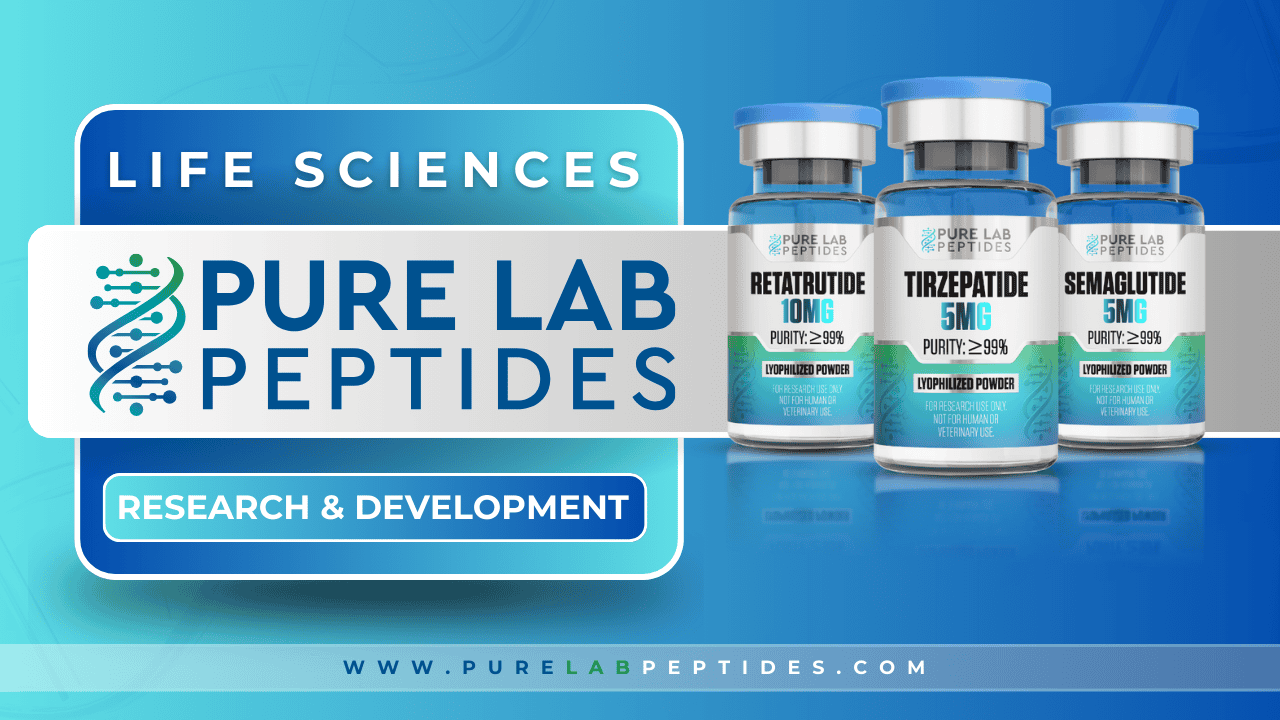
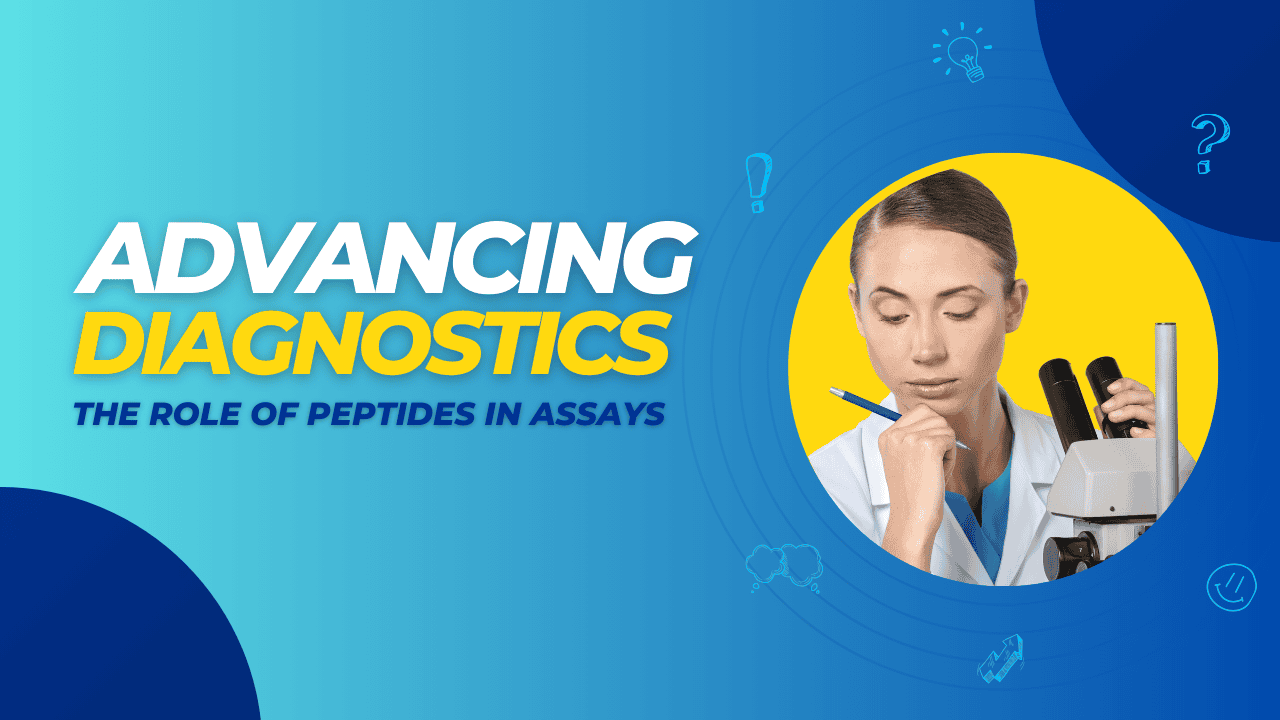
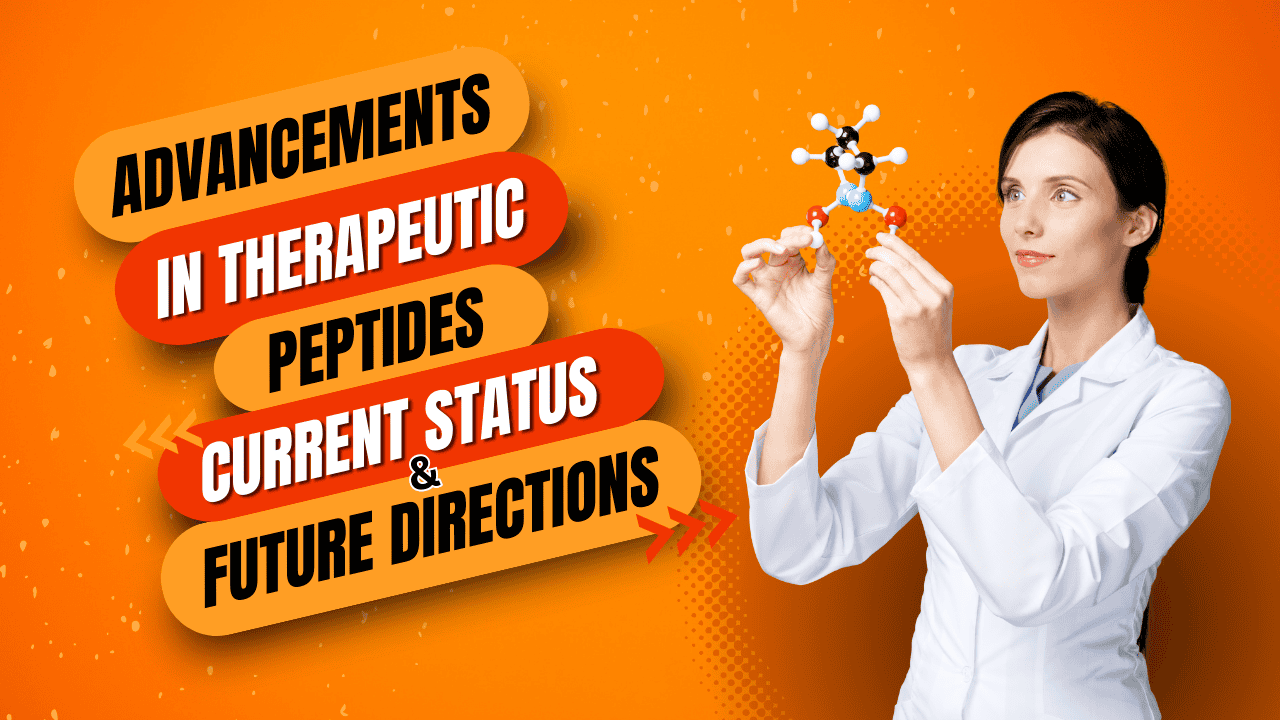
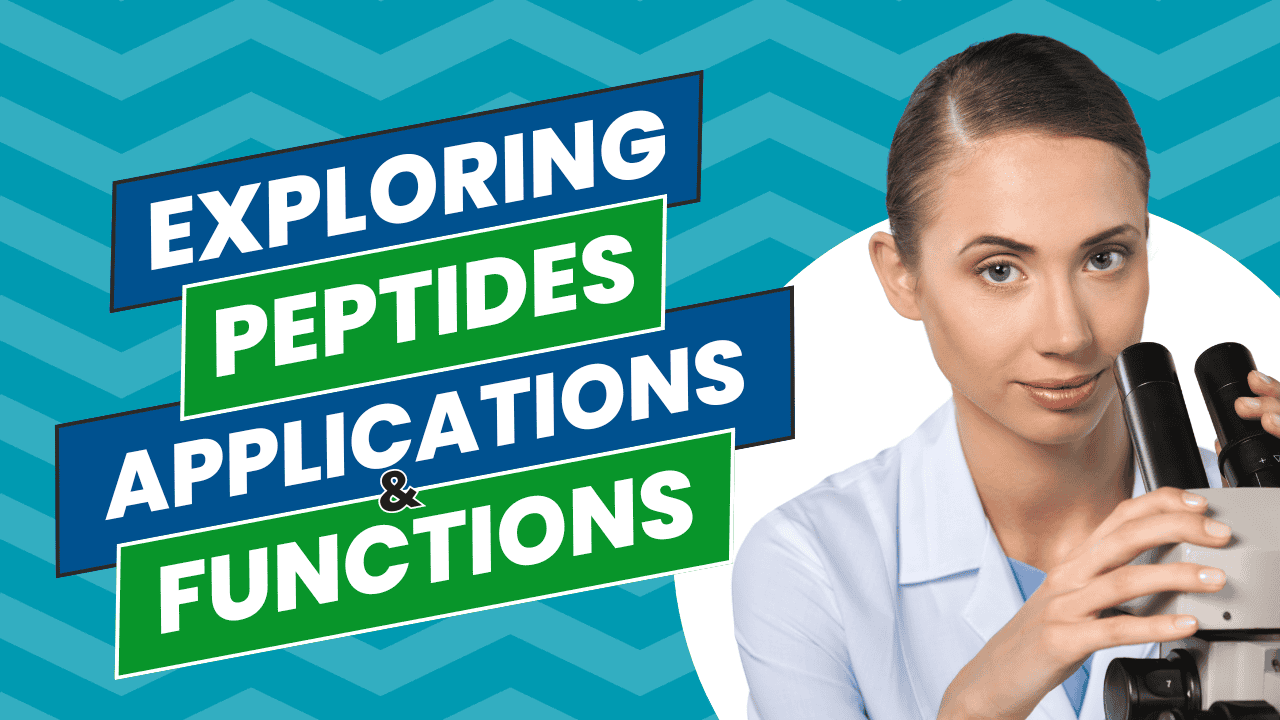
Discount Applied Successfully!
Your savings have been added to the cart.